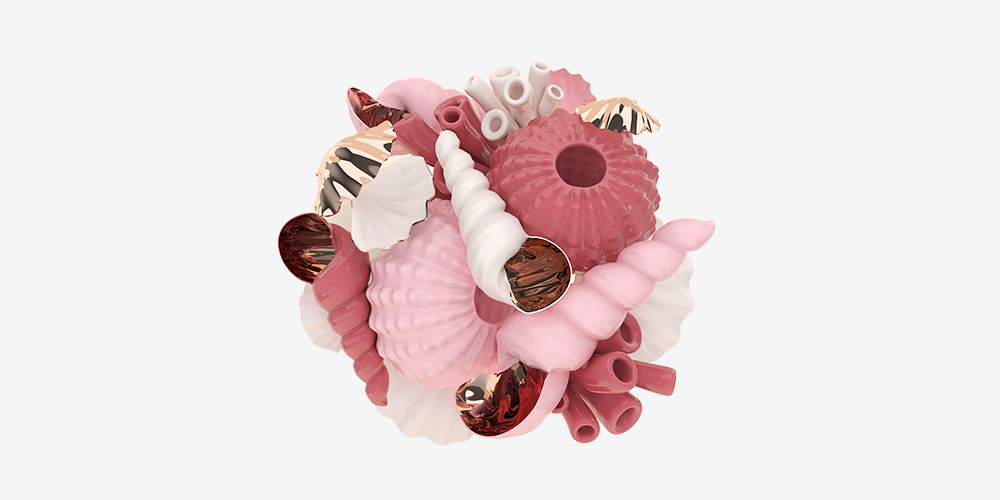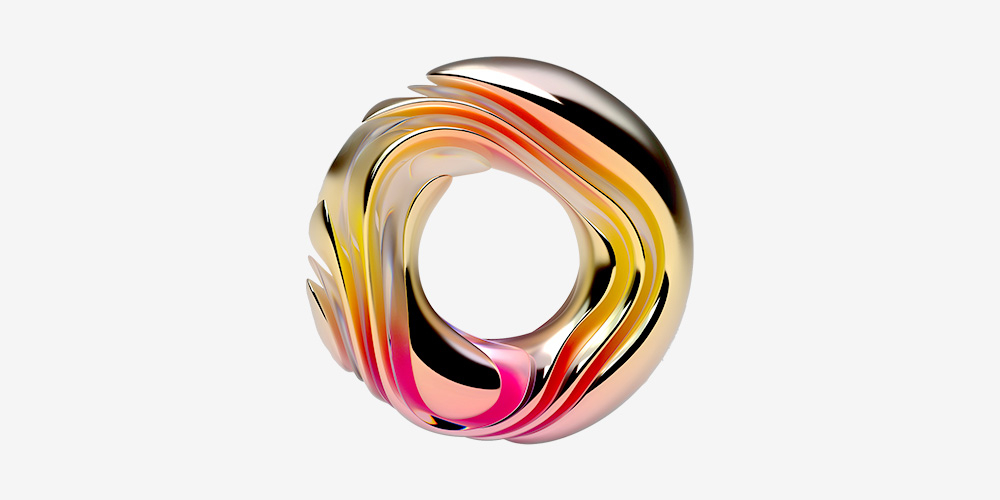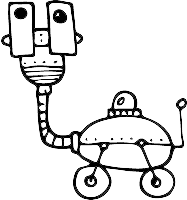Case studies, use cases, customer stories, community spotlights… You name it. They all serve the same purpose: to showcase the value of your product using real customer stories.
It’s the best kind of social proof, and the best inspiration.
But how exactly do you incorporate case studies in your emails to drive engagement? Let’s look at 10+ email examples featuring case studies from top SaaS brands.
Don’t wait for the muse. Apply this step-by-step method to write high-performing email campaigns in hours, not weeks.
Why you should use case studies in your email marketing strategy
Case studies in emails have the potential to increase engagement metrics and deliver powerful results. We asked experts about their results earned by incorporating customer case studies in their email campaigns. Here are two note-worthy achievements:
- Peter Michaels, CEO of Yeepsy, says that they saw a click-through rate of approximately 14%, which was significantly higher than their average CTR for similar campaigns.
- Simon Bacher, CEO and co-founder of Ling App, shares that an email marketing campaign that included a case study brought them a whopping 30% conversion rate.
Why do case studies in emails bring such great results?
The best kind of social proof. Case studies featuring real names from well-respected companies provide strong social proof, enhancing credibility and trustworthiness among prospects and existing customers.
Inspires action. Case studies showcase innovative uses of your product, inspiring customers to explore new and creative ways to maximize its potential.
Helps solve specific challenges. With real-world examples, case studies highlight how your product successfully addresses specific customer pain points. This provides practical insights that resonate with your audience.
Builds a moat of differentiation. There may be other companies that offer the same solution as yours, but your customer success stories are unique. This sets your brand apart from competitors and differentiates your offering in the market.
Establishes a sense of community. Sharing customer case studies fosters a sense of community among your customers. You encourage them to connect, share their experiences, and learn from one another.
Entertains readers. Case studies provide real-life stories and examples that entertain and captivate readers. By presenting relatable narratives in real-life scenarios, the content will be engaging and memorable.
How to incorporate customer case studies in emails
Here are some tips to help you craft an email with customer stories.
Use the before-during-after framework
Simplify your case study email by focusing on just the facts. Learn what the user experienced before, during, and after they used your product. We previously had a conversation with Joel Klettke about powerful case studies where he talks about this framework in detail.
Evoke emotion
Alternatively, you can choose to focus on the sentiment side. Case study emails don’t have to be just focused on quantitative results. You can add a human element.
Structure your email based on how the experience made a personal impact on your customer (aside from how it solved a challenge). This will help distinguish your brand from your competitors who might also use case studies.
Include measurable results if possible
If your case study features results that your customer received, make sure to include that in your email. A statement like “X [company/person] who uses this feature for Y step, has saved Z number of hours” would work. This will help them quantify the benefit(s) of your product.
Keep it short
When featuring case studies in emails, it’s best to keep it concise and engaging, leaving the reader curious for more. Let the full case study do the talking — a persuasive narrative, effectively showcasing the value and impact of your offering.
Make sure your email copy includes a hook that piques the reader’s interest and lets them know what to expect from the case study.
Segment and personalize the right way
To maximize results, send targeted case studies based on interest, demographic, or buying stage. For this, you’ll need to segment your email list properly.
Here’s a segmentation hack that Nick Gaudio, Director of content at Rattle, shared with us:
“One major hack is tying case studies to domains of subscribers. So you get somebody who signs up for an account or your newsletter. Then, create an industry column, and group new subscribers into buckets based on what their email tells you.
For instance, back when I was at Rev.com, when I’d get a .edu email, we’d send a case study catalog of all the ways transcription services had helped other big-name universities. It helped that we had a lot of big names in our pockets to pull from. For catch-all uses where the emails were general (think: your GMails and your Yahoos), we’d send the biggest logos we had.”
The bottom line is: segment users as much as possible. Try to find out specific characteristics for segmentation. And then send case studies that would interest each group.
Additionally, personalize the email content to address specific pain points or interests.
Explore different formats as case studies
Case studies don’t always have to be downloadable content pieces. You can include podcast episodes, articles, videos, and even webinars. You can also showcase customer’s work as examples in your emails.
Below you can find helpful examples of case study emails in different formats by SaaS brands.
Mix and match the formats
Here are some ways you can use case study materials in your emails. You can mix and match those to fit your goals:
- As standalone emails in your lead nurture and lifecycle campaigns
- Within your newsletters, as a special block
- As community roundups (same as Webflow and others do below)
Examples of emails featuring case studies
Let’s look at how some of the best SaaS brands creatively use case studies in their emails strategy.
#1. Clay
Subject: How Anthropic uses Clay to 3x their enrichment coverage
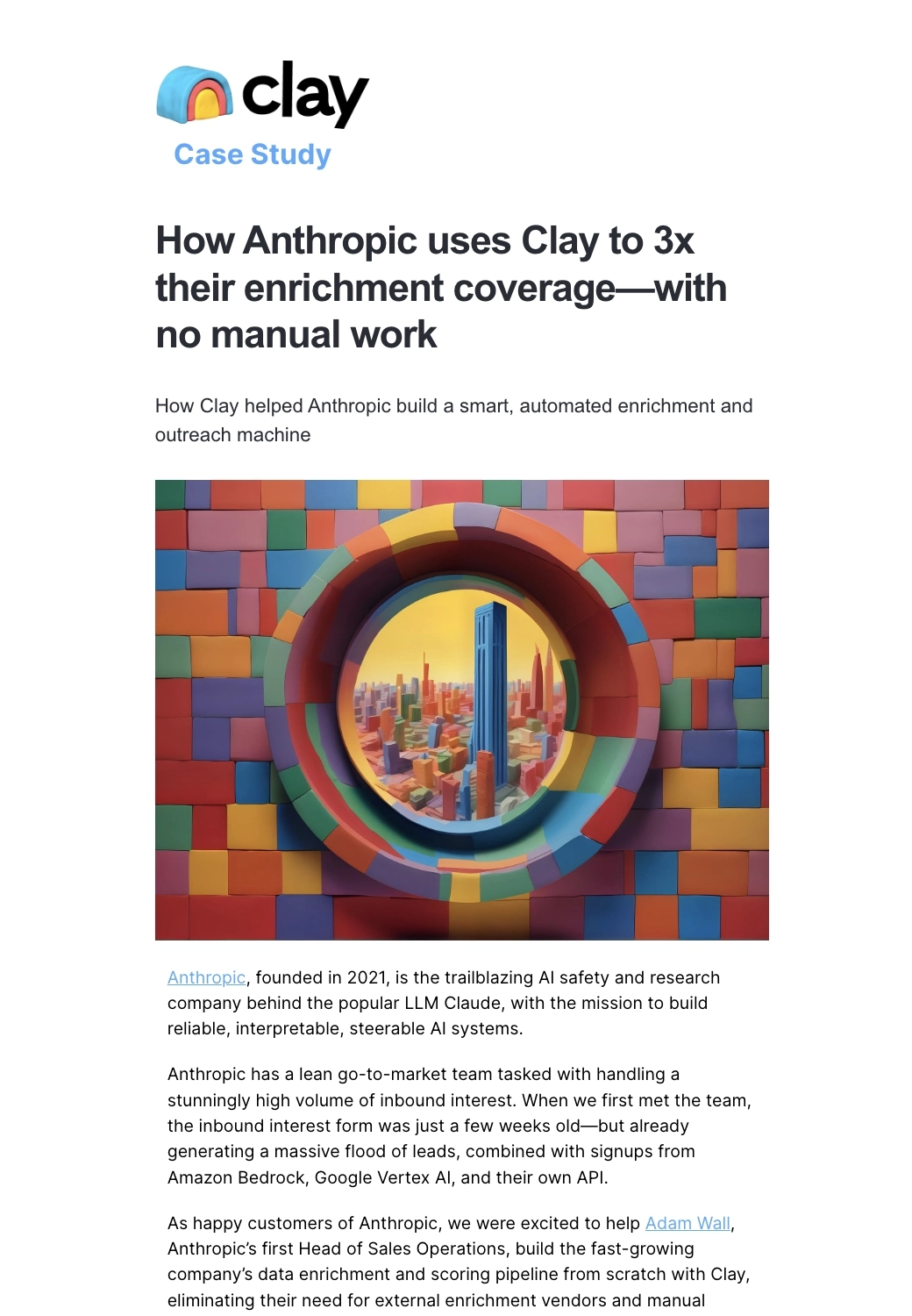
Clay is a platform that helps users scale their cold outreach with enriched lead data.
They sent out this super long full text email that featured Anthropic’s 4 use cases for Clay. Before going into the specific use cases, Clay wrote an Impact TLDR section so the readers immediately get the gist of the email.
Using the problem-solution approach, Clay effectively utilized storytelling in their email to share how they helped Anthropic’s small GTM team with their challenges.
What can be done better?
Readers often just skim their emails so they might not be willing to read a super long email like this. A short summary with a link to the detailed post would be less overwhelming for the reader.
Meanwhile, here’s a section they included in one of their newsletters.
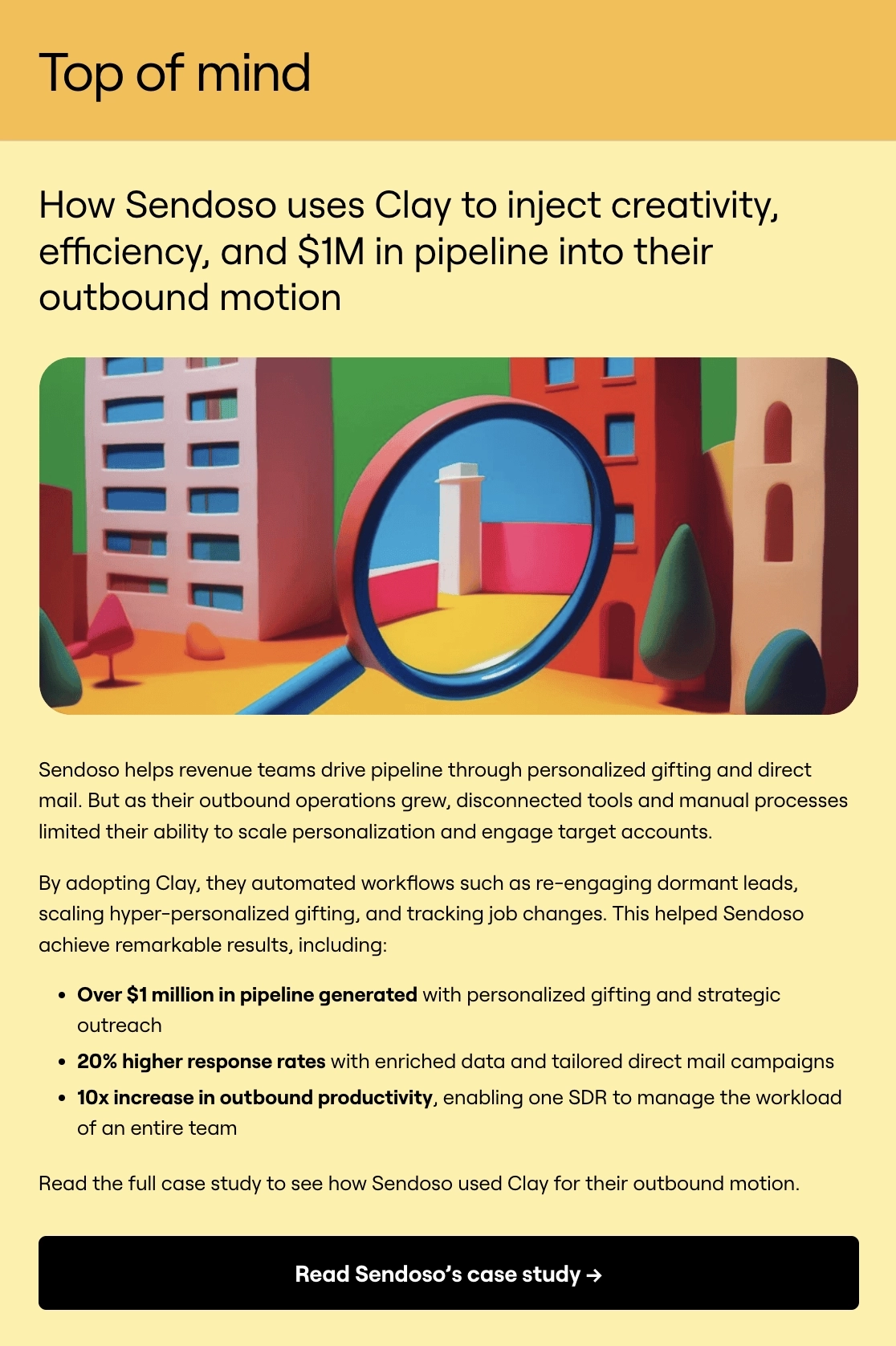
The section’s header immediately tells you how Sendoso uses Clay and their results from using it. The section body details Sendoso’s challenges and their remarkable results from using the platform. Should the reader want more details, they link to a dedicated post on Sendoso’s case study.
And here’s a more recent case study email example from them.
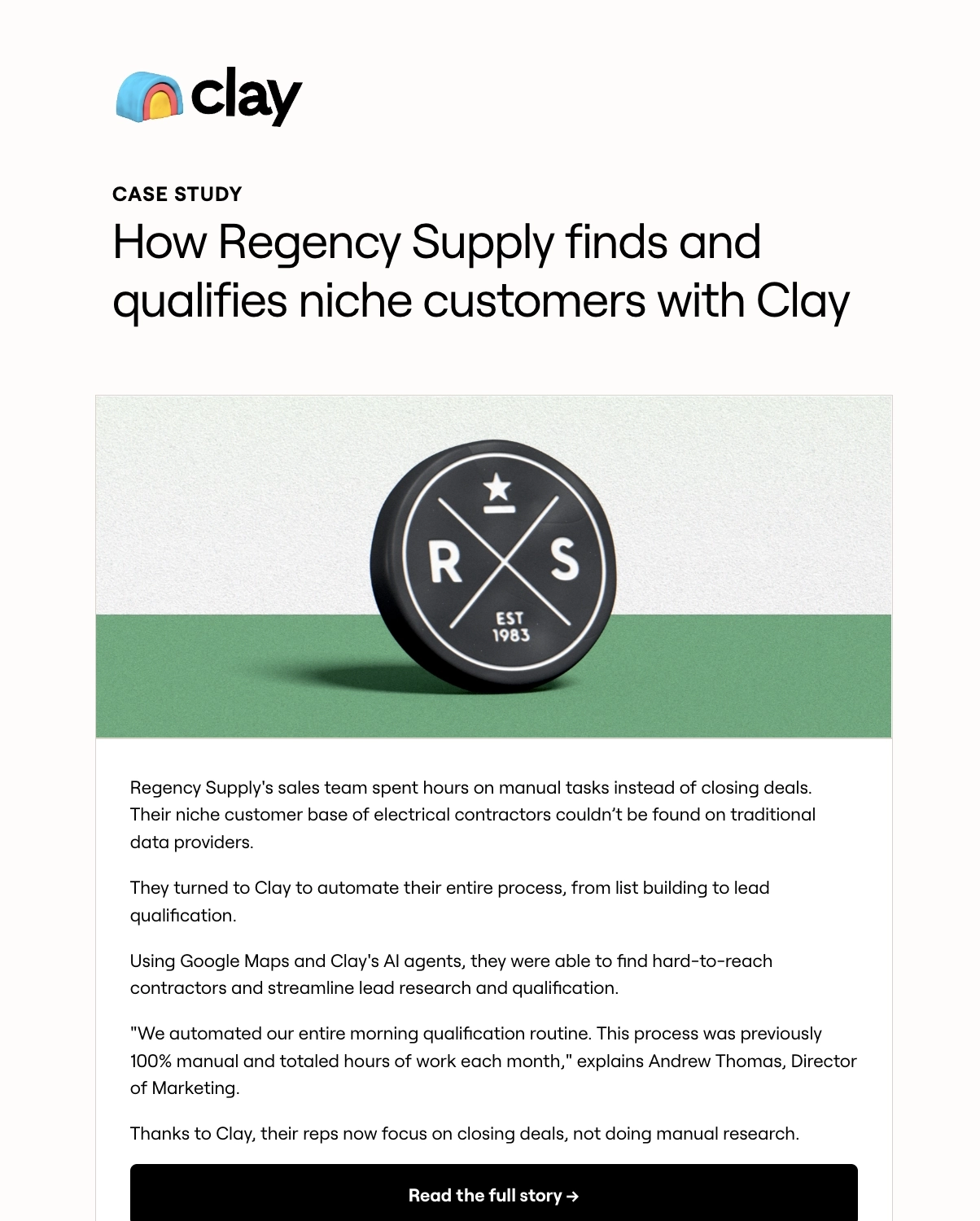
Compared to the first example, Clay went with a shorter case study email for this one.
The header tells us exactly what Regency uses Clay for. The body tells us about their problem and how Clay became the solution. Should the reader want to know more, the CTA button links to the full case study.
#2. Reddit
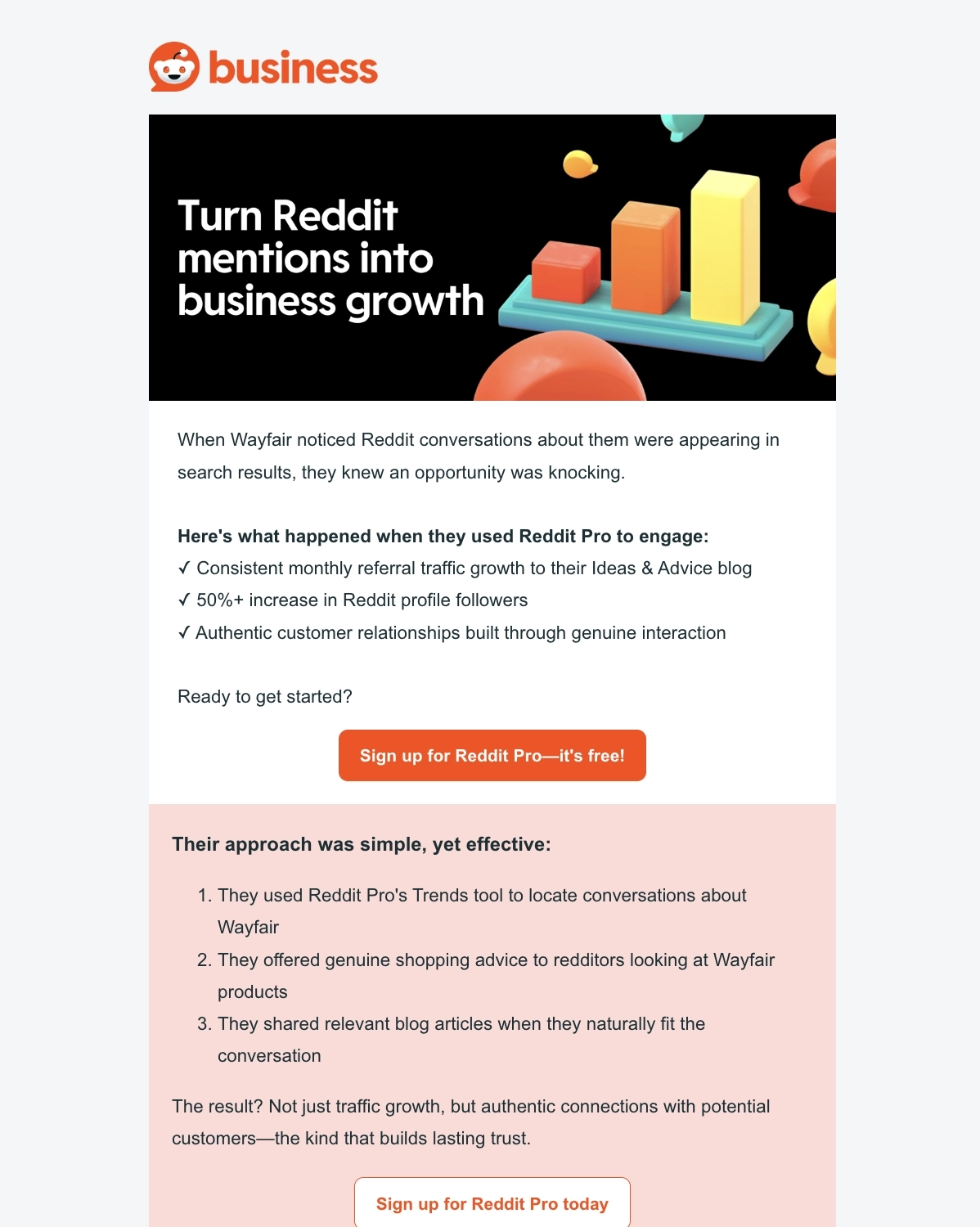
Reddit Pro lets businesses find, engage, and grow their customers on the platform.
They sent a dedicated email to share how the platform boosted Wayfair’s business growth, encouraging the user to sign up for a Pro account.
The email is separated into two major sections: the specific results from using Reddit Pro, and Wayfair’s approach on using the platform.
#3. Webflow
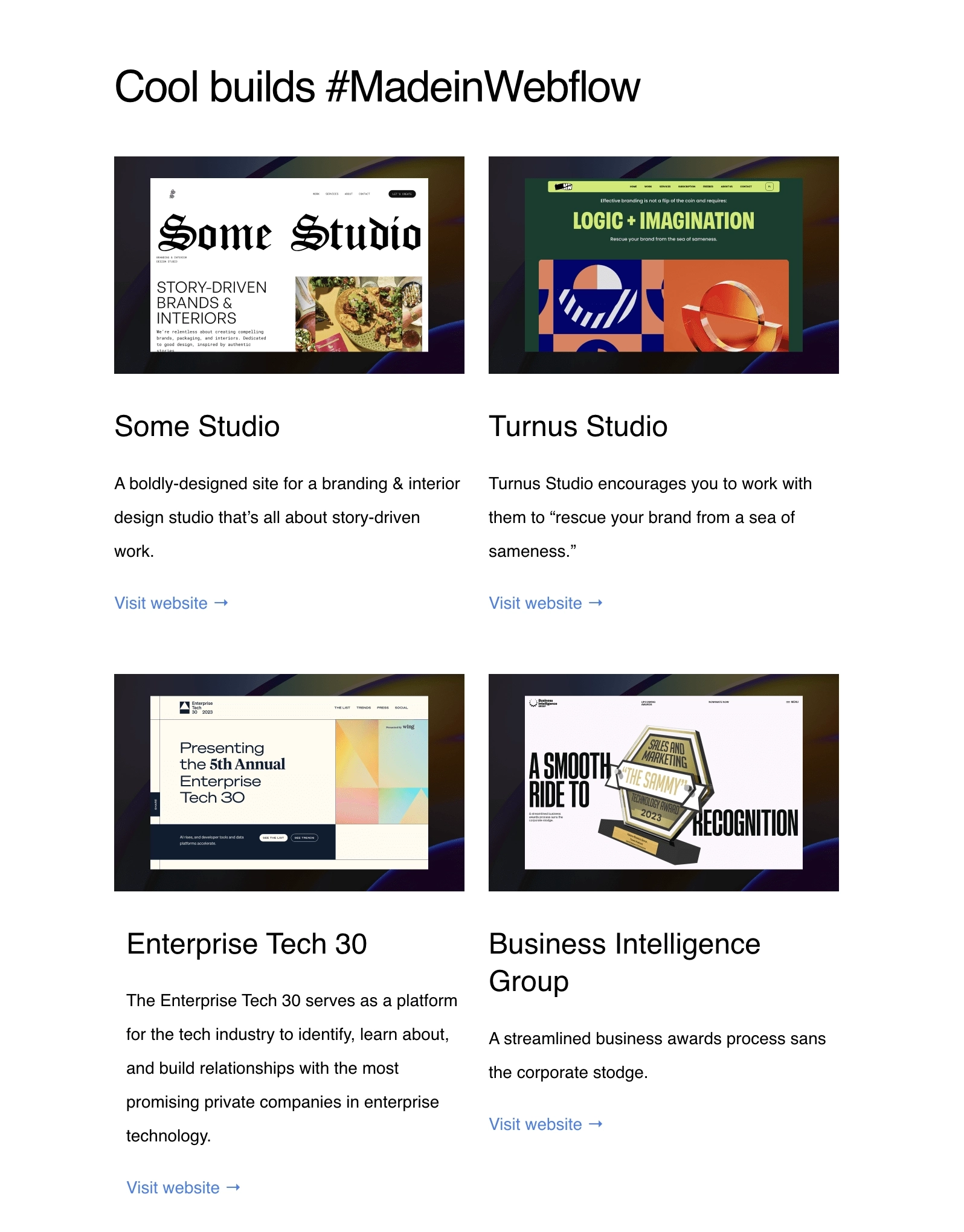
Webflow is a tool that allows no-coders to create professional, custom websites with a visual canvas.
Webflow’s newsletters showcase websites built by some of their customers. They use an image and a short description with a link to the customer’s website.
#4. Figma
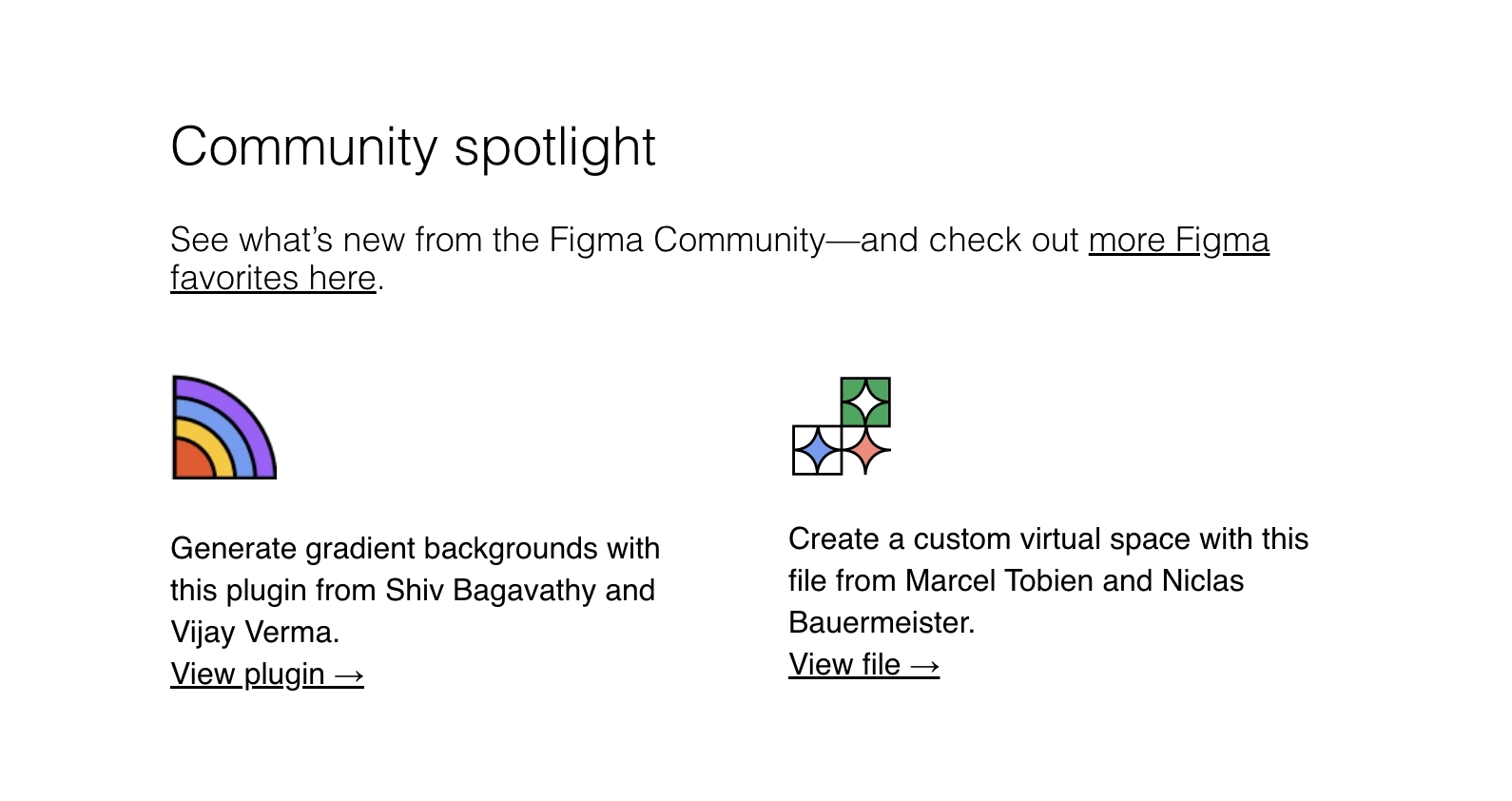
Figma, a popular design software, showcases community accomplishments in their newsletter.
They also share plugins and other reusable creatives by other Figma users. While this isn’t exactly a ‘customer story’, it has the essence of it, and email makes a great distribution channel for these.
#5. Descript
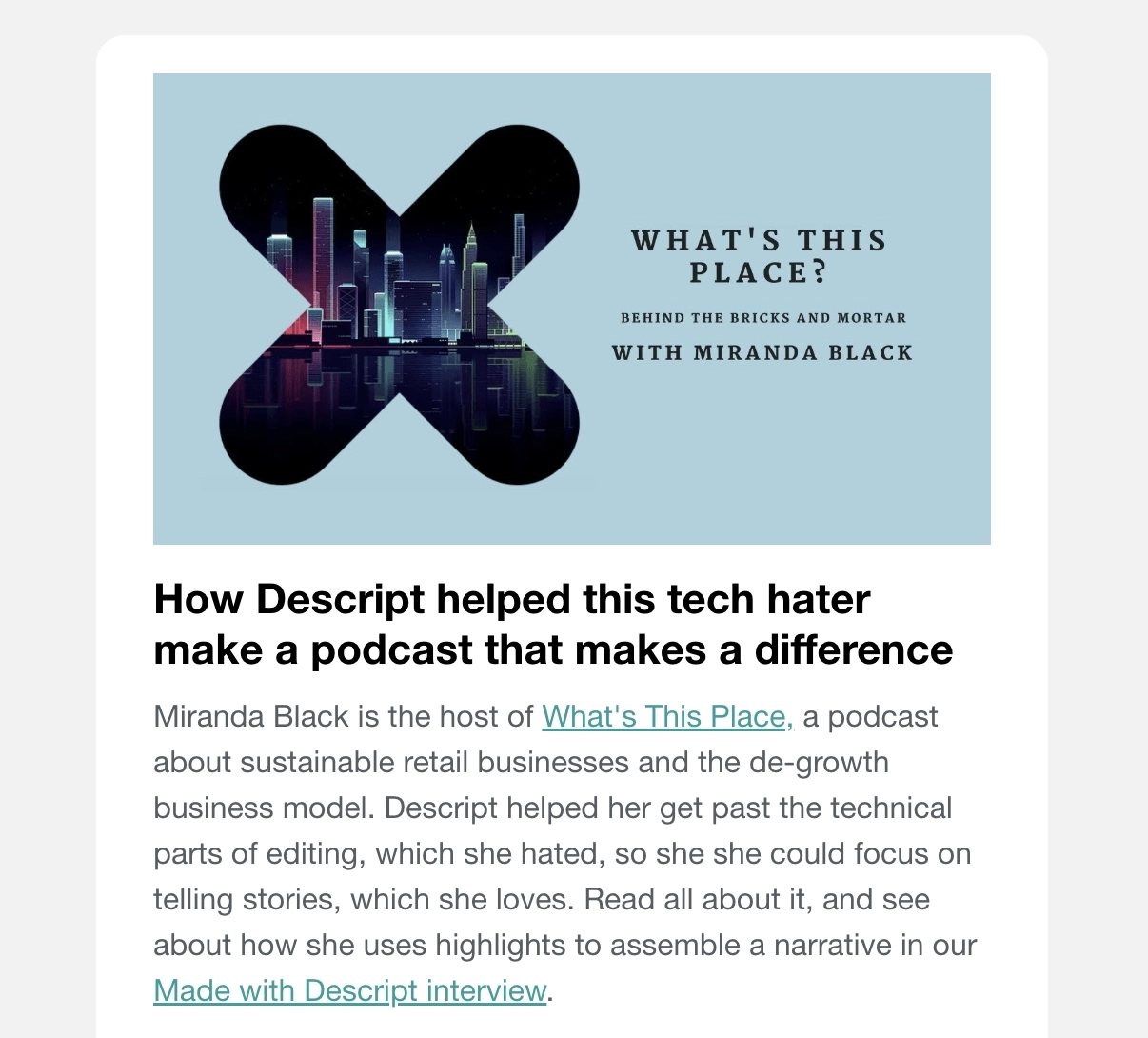
Descript is a video and podcast editing software.
They use email to share some of their case studies done as customer interviews. In this particular email, the author specifies a challenge the customer faced, which is likely a common pain point for others as well. The copy is short and catchy and tells the reader what to expect. They link to the interview at the end.
#6. Loom
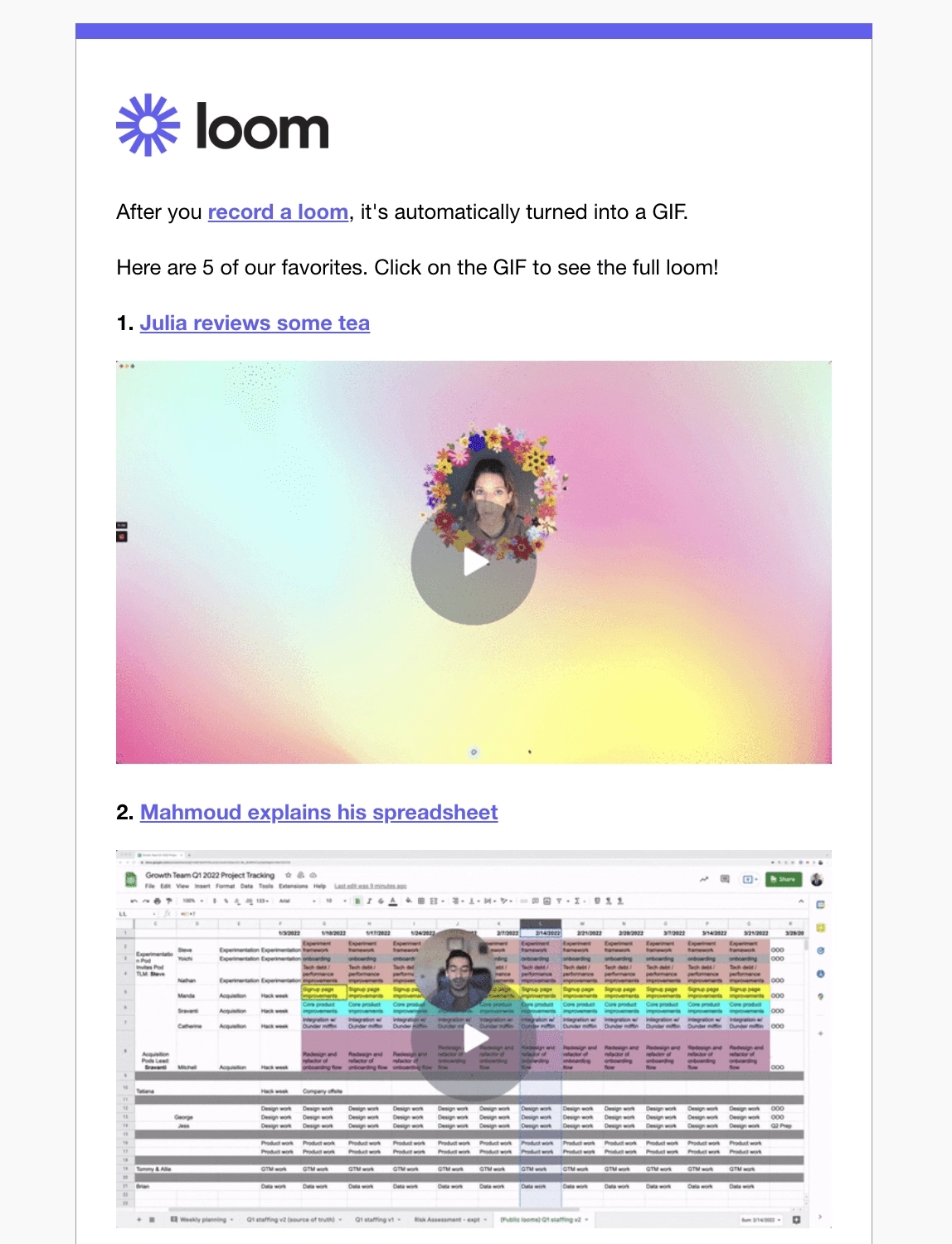
Loom is a screen recording software with async video.
Loom shares short customer creations during their onboarding flow. New users can get inspiration and quickly understand more about the product.
They also offer a round-up of case studies presented as a guide.
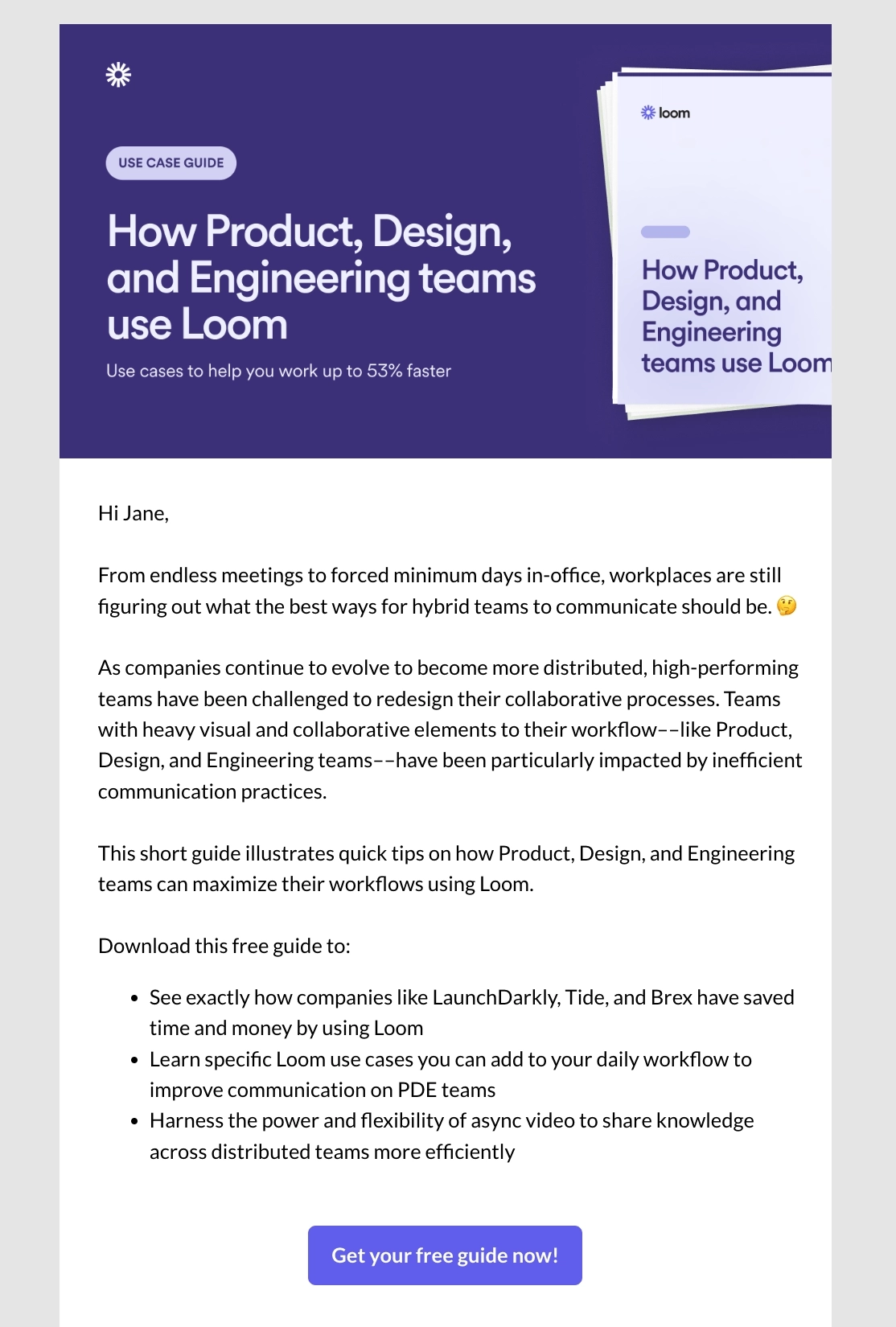
Note how they include a specific number, and include the results accomplished by their customers. The email promotes specific Loom features without sounding too promotional.
Don’t wait for the muse. Apply this step-by-step method to write high-performing email campaigns in hours, not weeks.
#7. Toggl
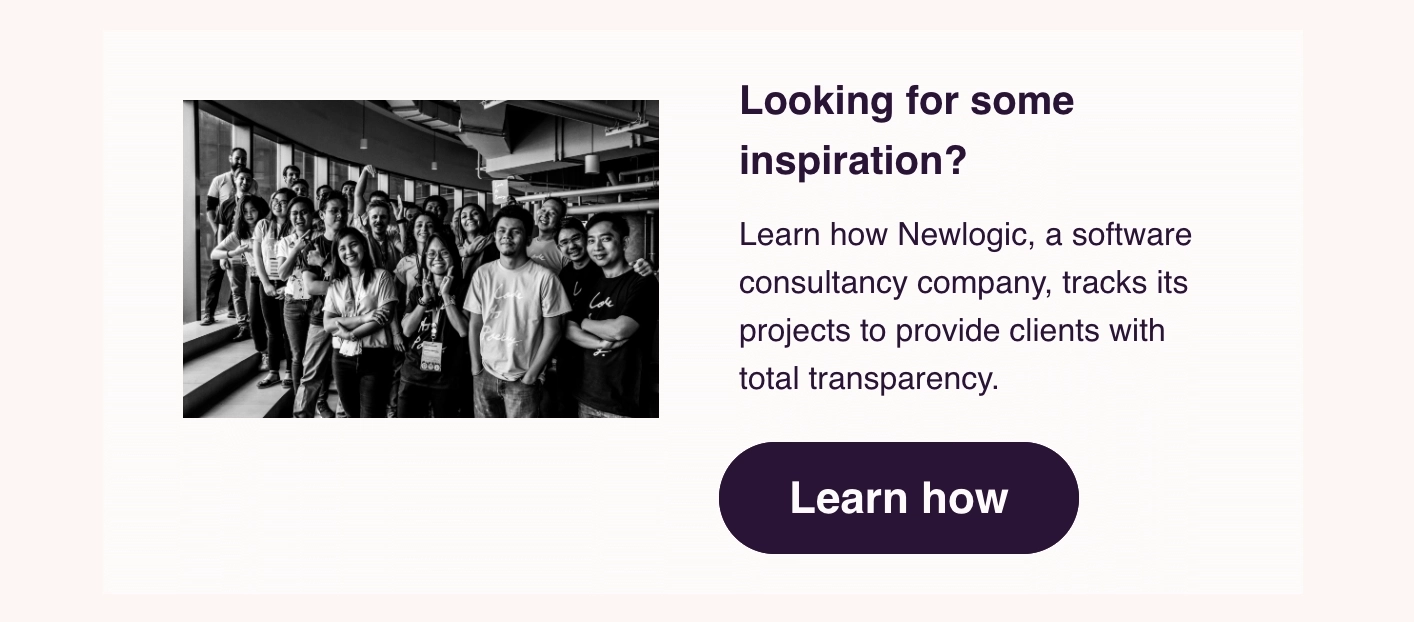
Toggl is a time tracking tool that helps save time and make the most of productive hours.
To provide new subscribers with inspiration, one of their onboarding emails features a case study about one of their clients.
#8. Feedly
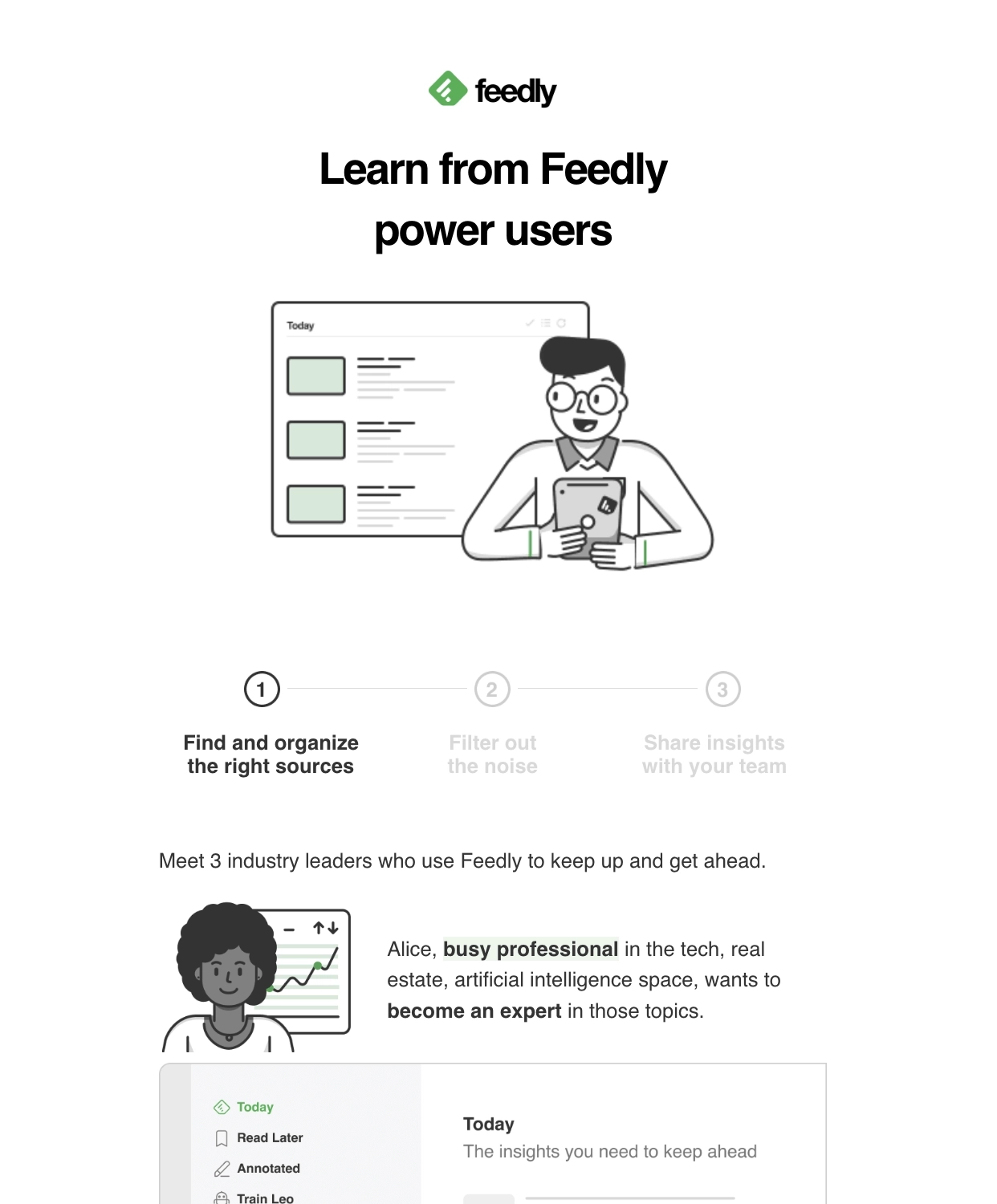
Feedly is a tool that helps prioritize content you want to read across the internet with the help of an AI research assistant.
Feedly uses imaginary personas as case studies during their user onboarding. Instead of a long product demo video, they opted for a visual email that helps users understand the different ways they can use the product.
Although these aren’t real case studies, they serve the purpose of informing the user about the product benefits with real scenarios.
#9 Mercury
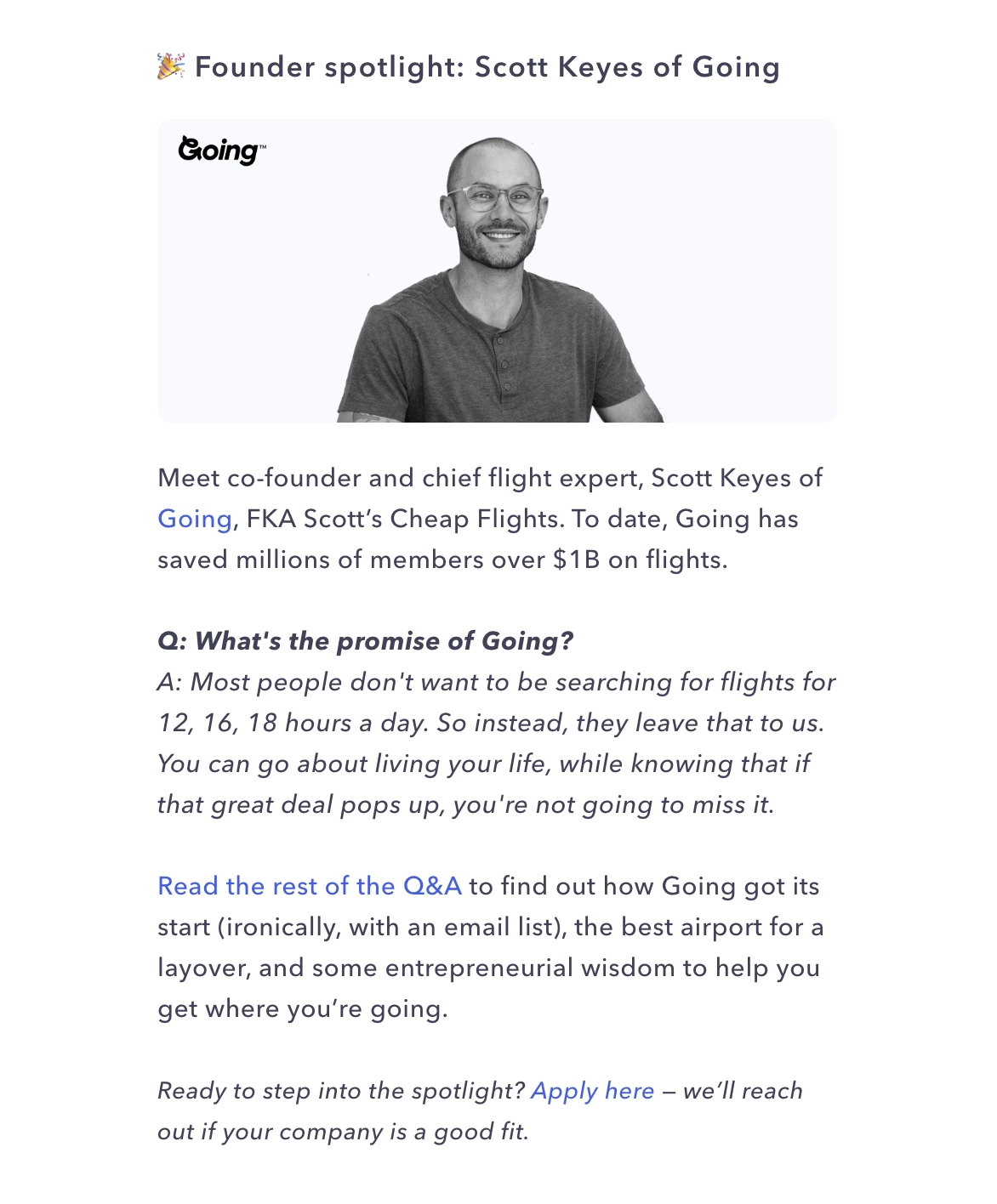
Mercury, the startup bank, includes a “founder spotlight” section in their newsletter.
These customer stories, in the form of Q&As, are not necessarily product-focused. Rather, they tell the founder’s story and the company they built. The email features one of the Q&A and links to the rest.
#10. Shopify
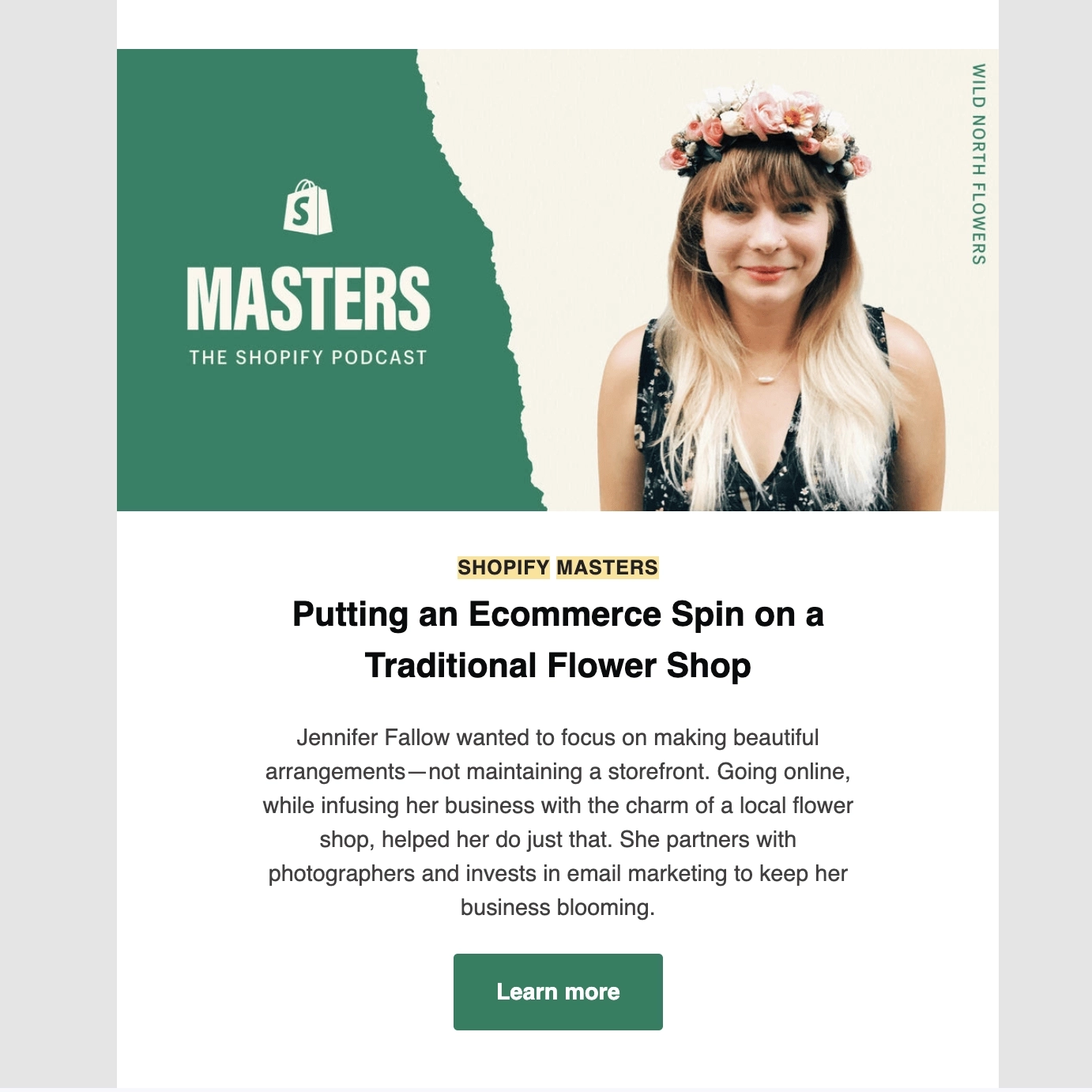
Shopify, an ecommerce platform, features multiple case studies on their blogs and other channels.
Another example of a case study promoted in a newsletter. This one promotes an episode of the Shopify Masters podcast, which has insightful conversations with Shopify store owners and industry experts.
#11. Airtable
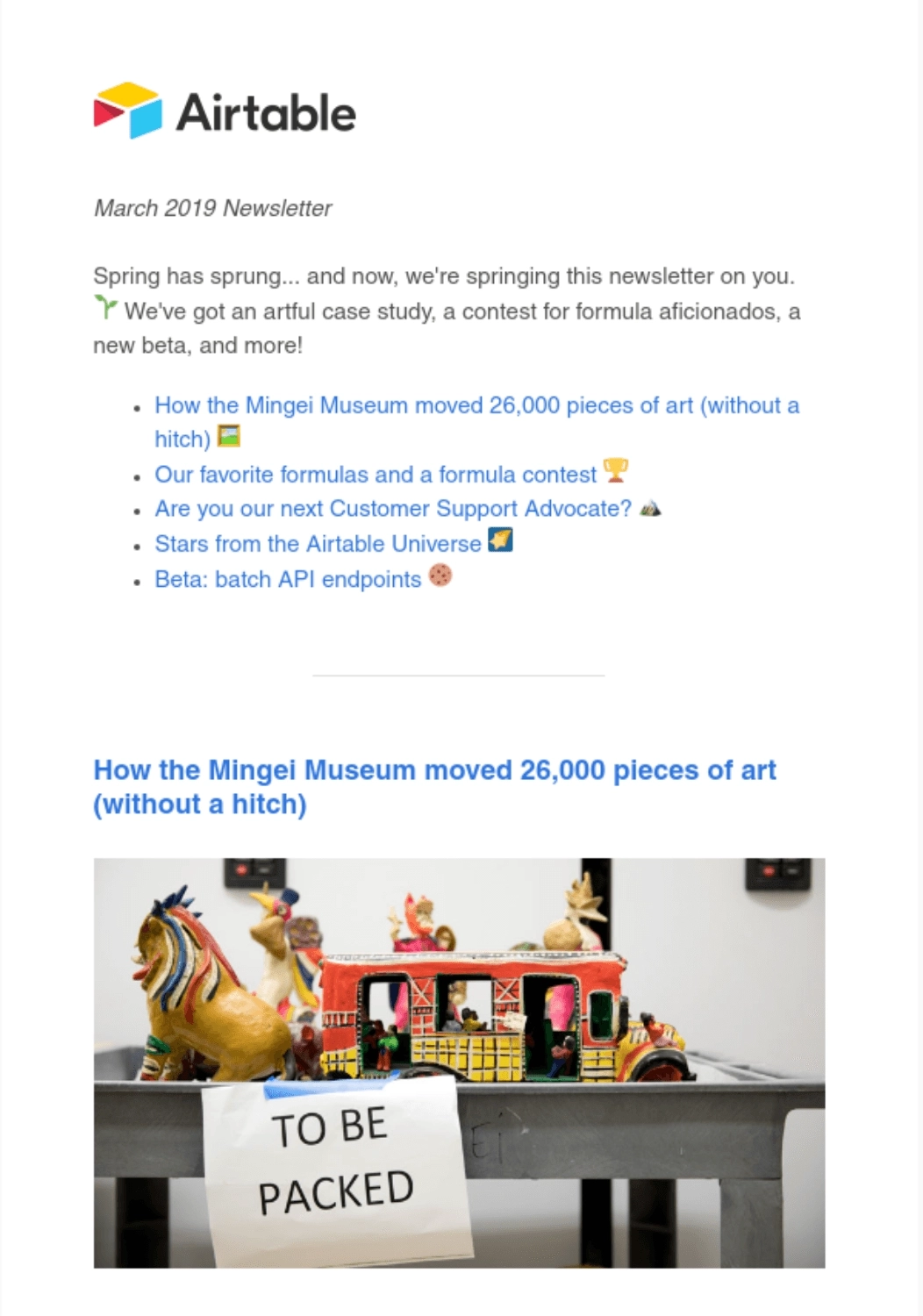
Airtable is a low-code platform for teams that build apps and productivity tools.
In this newsletter, they showcase how one of their customers used Airtable to move their items. They include just enough information to spark curiosity on this use case.
#12. Canva
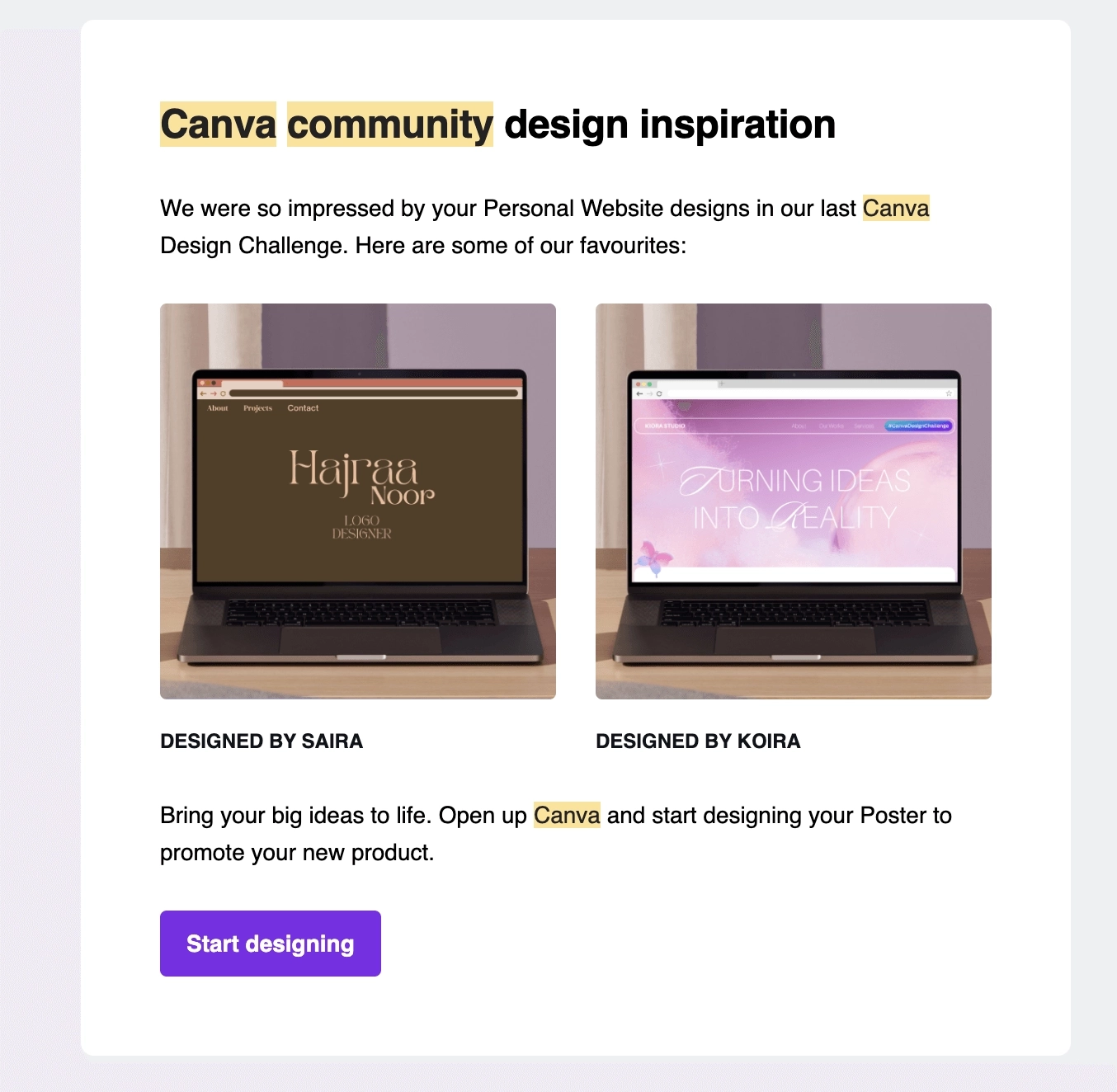
Canva, an online graphic design tool, is known for its community-focused approach to marketing. They regularly initiate design activities and challenges that users participate in.
In some of their newsletters, Canva showcases a few creations by the Canva community. The one above has a few personal website designs by creators.
#13. VSCO
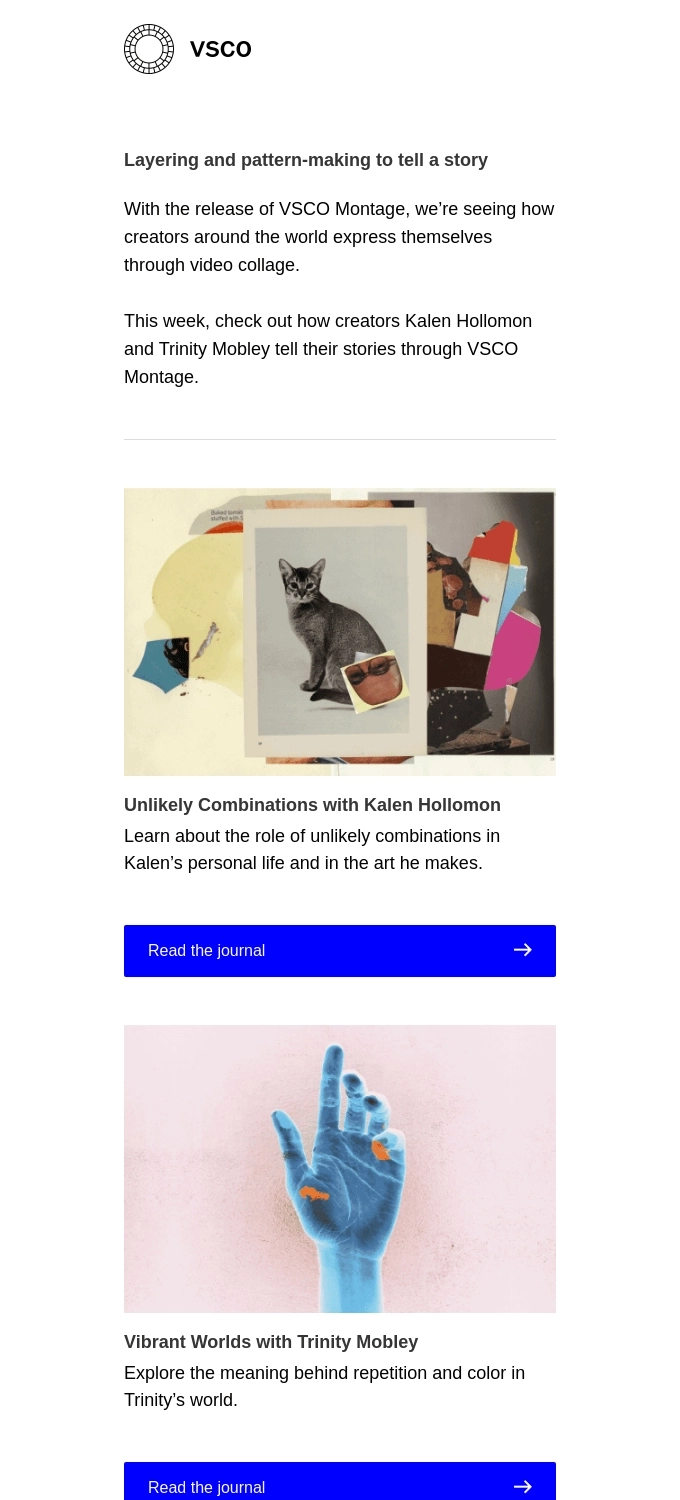
VSCO is a professional photo and video editing tool.
VSCO has a creator-focused newsletter. In this edition, they mention how two creators used the Montage feature available on their product and links to the VSCO journal, a visual blog.
#14. Rev
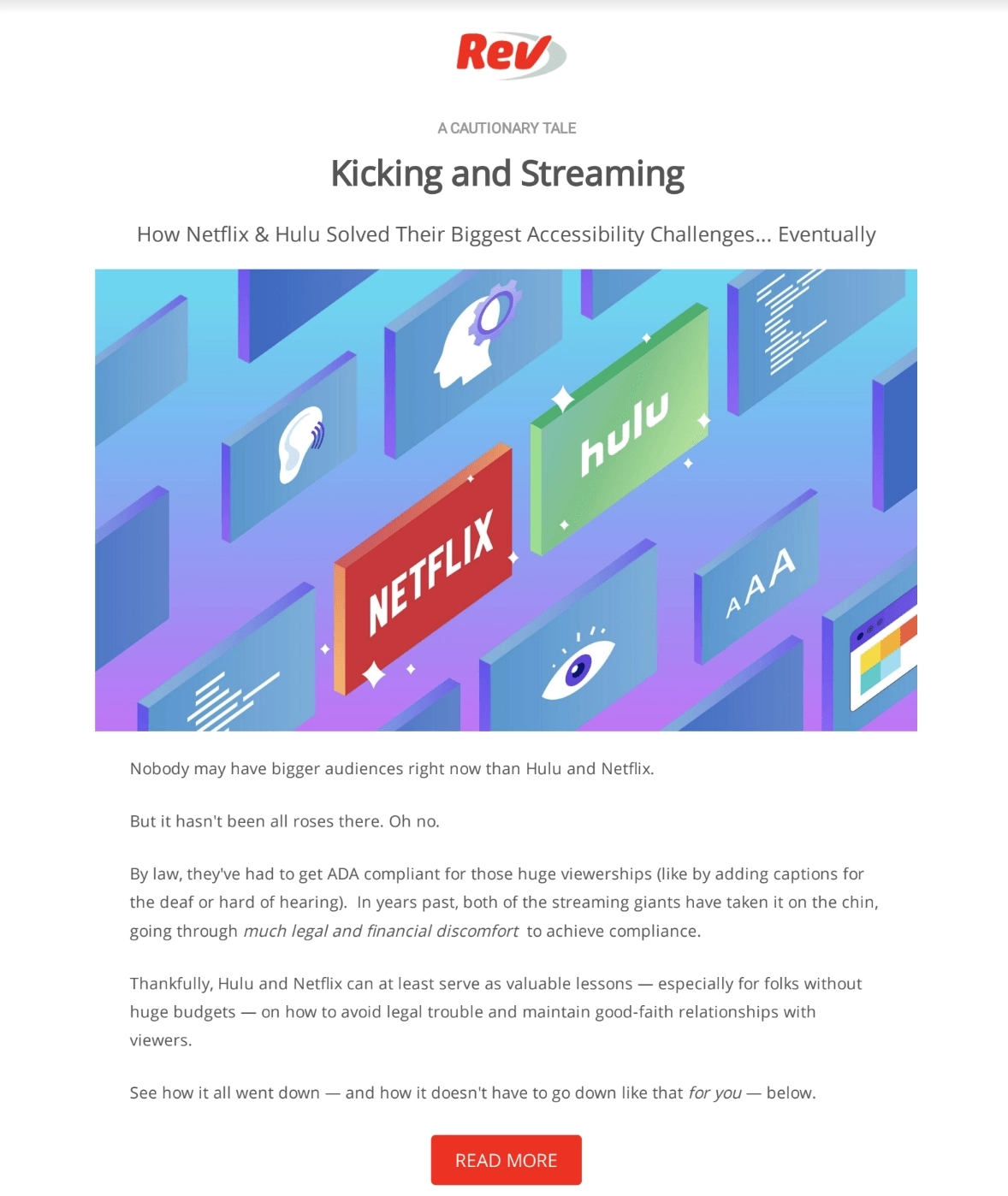
Rev, an AI transcription company, sends out case study emails to new leads and customers.
The email copy has a light tone and uses learnings from Netflix and Hulu as lessons for their customers. They keep it concise and link to the downloadable case study at the end. Bravo!
Leverage case studies in emails to bring better results
Let’s look at the key takeaways from the examples:
- Highlight a pain point that your product solves, or a challenge your product helped overcome.
- Include measurable results if possible, allowing customers to quantify the benefits of your product.
- Evoke emotion by adding a human element to your case study emails, going beyond just quantitative results.
- Segment and personalize case studies based on interests, demographics, or buying stage to maximize their relevance and impact.
- Explore different formats for case studies such as podcast episodes, articles, videos, or webinars to provide diverse content options in your emails.
- Keep case study emails short and engaging, enticing readers to learn more through a click for the full case study.
- Mix and match case study formats, incorporating them as standalone emails, within newsletters, or as community roundups, to suit your goals and campaigns.
Incorporating customer case studies in your email marketing strategy can be a game-changer for your business. We hope these examples gave you inspiration for your next email campaign.
Don’t miss out on new articles. Subscribe to our newsletter and get your monthly dose of SaaS email marketing insights.

